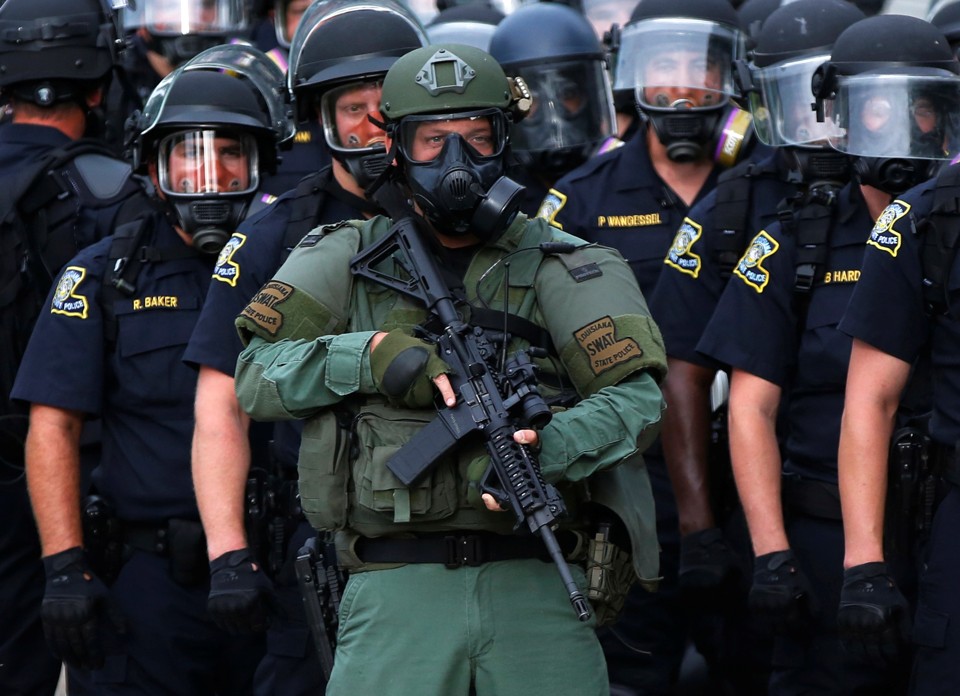The Near Certainty of Anti-Police Violence
By ignoring illegitimate policing, America has also failed to address the danger this illegitimacy poses to those who must do the policing.

Last week, 25-year-old Micah Xavier Johnson murdered five police officers in Dallas. This abhorrent act of political extremism cannot be divorced from American history—recent or old. In black communities, the police departments have only enjoyed a kind of quasi-legitimacy. That is because wanton discrimination is definitional to the black experience, and very often it is law enforcement which implements that discrimination with violence. A community consistently subjected to violent discrimination under the law will lose respect for it, and act beyond it. When such actions stretch to mass murder it is horrific. But it is also predictable.
What does it mean, for instance, that black children are ritually told that any stray movement in the face of the police might result in their own legal killing? When Eric Holder spoke about getting “The Talk” from his father, and then giving it to his own son, many of us nodded our heads. But many more of us were terrified. When the nation’s top cop must warn his children to be skeptical of his own troops, how legitimate can the police actually be?
And it is not as if Holder is imagining things. When the law shoots down 12-year-old children, or beats down old women on traffic islands, or chokes people to death over cigarettes; when the law shoots people over compact discs, traffic stops, drivers’ licenses, loud conversation, or car trouble; when the law auctions off its monopoly on lethal violence to bemused civilians, when these civilians then kill, and when their victims are mocked in their death throes; when people stand up to defend police as officers of the state, and when these defenders are killed by these very same officers; when much of this is recorded, uploaded, live-streamed, tweeted, and broadcast; and when government seems powerless, or unwilling, to stop any of it, then it ceases, in the eyes of citizens, to be any sort of respectable law at all. It simply becomes “force.”
The Talk is testament to something that went very wrong, long ago, with law enforcement, something that we are scared to see straight. That something has very little to do with the officer on the beat and everything to do with ourselves.There’s a sense that the police departments of America have somehow gone rogue. In fact, the police are one of the most trusted institutions in the country. This is not a paradox. The policies which the police carry out are not the edicts of a dictatorship but the work, as Biden put it, of “the greatest democracy in the history of the world.” Avoiding this fact is central to the current conversation around “police reform” which focuses solely on the actions of police officers and omits everything that precedes these actions. But analyzing the present crisis in law enforcement solely from the contested street, is like analyzing the Iraq War solely from the perspective of Abu Ghraib. And much like the Iraq War, there is a strong temptation to focus on the problems of “implementation,” as opposed to building the kind of equitable society in which police force is used as sparingly as possible.
There is no shortcut out. Sanctimonious cries of nonviolence will not help. “Retraining” can only do so much. Until we move to the broader question of policy, we can expect to see Walter Scotts and Freddie Grays with some regularity. And the extent to which we are tolerant of the possibility of more Walter Scotts and Freddie Grays is the extent to which we are tolerant of the possibility of more Micah Xavier Johnsons.
http://www.theatlantic.com/politics/archive/2016/07/the-near-certainty-of-anti-police-violence/490541/




1 opmerking:
De bespottelijke foto alleen al van dat menneke met zijn spuit. Infantiele
domkoppen.
En hier in Nederland is het beslist niet anders (die infantiliteit is een
selectie-criterium).
Een reactie posten